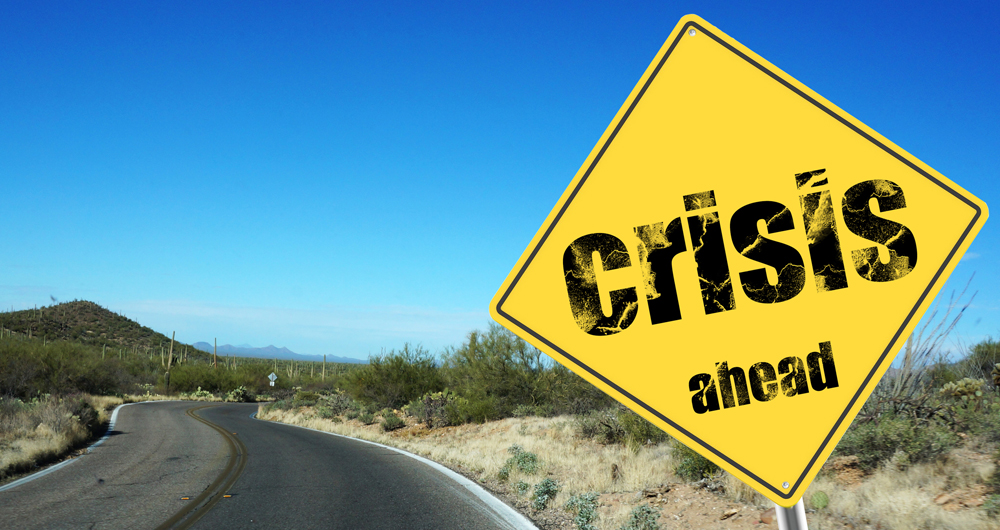At any moment, a client could text, call, or email with a crisis. You’ll need to respond quickly. See what people who’ve lived through crises have learned from their experiences.
Five Takeaways from PwC’s Global Crisis Survey
By Michael Wayne
Agents, producers, account managers, loss control specialists, and claims specialists all potentially face some sort of crisis daily. At any moment, a client could text, call, or email with an impactful situation. While those of us in the industry live this reality daily, it doesn’t seem like the majority of us are truly prepared for what may happen. In particular, it doesn’t seem like many of us have a concrete plan for responding to a crisis—that includes crises that aren’t directly related to clients. Unfortunately, those crises are just as likely to ruin relationships with clients.
While 80% of U.S. respondents reported experiencing at least one crisis in the last five years … a mere 15% actually performed root cause analyses and followed through on actionable changes from prior incidents
Earlier this year, PricewaterhouseCoopers conducted an inaugural global crisis survey that collected responses from 2,084 senior executives in organizations of various sizes. Twenty-five industries and 43 countries were represented, and data was recorded concerning more than 4,500 corporate crises. The 141 respondents from the United States accounted for 451 of those crises. Here are the five main takeaways from the survey.
- No one is immune.
Of the U.S. respondents, eight out of 10 experienced at least one crisis in the last five years. These included humanitarian, operational, technological, human capital, legal, reputational and financial events. The high rate of identification is an indication that as a society we are becoming more confident in our ability to identify a crisis as a crisis. To a large degree, the stigma of suffering a crisis has been greatly reduced. Organizations are, for the most part, acknowledging when a crisis hits and that crisis, unfortunately, is the new normal.
- A plan alone is not enough.
More than 90% of U.S. executives indicated their organizations have a crisis response plan, but only 23% actually used their plan and derived value from it. Nearly half, 48%, felt overwhelmed by their most recent crisis. Troublingly, only 21% review and test their plans regularly.
Certainly, it’s a great idea to make a crisis plan agnostic, but it is also a good idea to plan for as many likely situations as possible. Additionally, the plan should be tested regularly and updated. Doing so will increase confidence in the plan.
- Team coordination is a top vulnerability.
Among the U.S. executives, 25% admitted that there is no executive owner for when a crisis happens, while 41% indicated that they have a crisis team with defined roles and responsibilities. Without a doubt, having clearly established roles and responsibilities is critical to the efficiency of a response. Having that team practice their response should ultimately, and hopefully, galvanize them. A confident core team is also beneficial for getting other organizational employees to serve as messengers and brand ambassadors.
- Not enough companies are acting on lessons learned.
While 80% of U.S. respondents reported experiencing at least one crisis in the last five years and 98% insisted that they expect to be hit by a crisis in the future, a mere 15% actually performed root cause analyses and followed through on actionable changes from prior incidents.
- Companies that emerge stronger from a crisis do these five things:
- Allocate budget to crisis management before a crisis hits
- Have a plan that is tested and revised as necessary
- Adopt a fact-based approach and include key stakeholders
- Perform a root-cause analysis and follow up on the findings
- Act as a team and hold to organizational values
As social media evolves, there is little doubt that crises will be more complex and harder than ever to contain. Scrutiny from clients and the public at-large regarding how crises are responded to will only intensify and expectation of response efficiency will only increase. Ultimately, those who are prepared will have a competitive advantage over those who are not. In fact, being as prepared as possible to face an oncoming crisis may actually make organizations stronger in their day-to-day operations.





